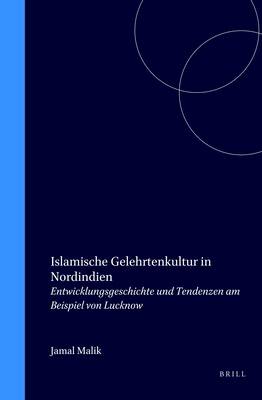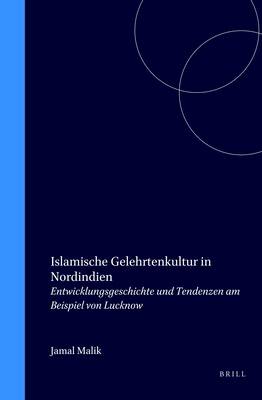
- Afhalen na 1 uur in een winkel met voorraad
- Gratis thuislevering in België vanaf € 30
- Ruim aanbod met 7 miljoen producten
- Afhalen na 1 uur in een winkel met voorraad
- Gratis thuislevering in België vanaf € 30
- Ruim aanbod met 7 miljoen producten
Zoeken
Islamische Gelehrtenkultur in Nordindien
Entwicklungsgeschichte Und Tendenzen Am Beispiel Von Lucknow
Jamal Malik
€ 493,45
+ 986 punten
Omschrijving
This insightful volume treats the world of the learned classes in the region of Awadh, in Muslim North India, with its famous capital Lucknow, from the fifteenth to the twentieth centuries. It focusses on those circles which carried, promoted, and reflected acculturation and interference in traditional as well as colonial settings. Part I examines the qasbahs where the seeds are laid for the efflorescence of scholarship, connecting South Asia with the Middle East and Europe. Part II deals with the accommodation of Islamic religious culture in the newly-established territorial states in the 18th century. The last section studies the Learned Council of Islamic Scholars (Nadwat al-'Ulamā') in Lucknow, its historical growth and internal set-up as well as its interaction with colonialists and traditionalists. The study is based on rich biographical and chronological accounts, narrative material, archival data, curricula and European reports.
Specificaties
Betrokkenen
- Auteur(s):
- Uitgeverij:
Inhoud
- Aantal bladzijden:
- 609
- Taal:
- Duits
- Reeks:
- Reeksnummer:
- nr. 19
Eigenschappen
- Productcode (EAN):
- 9789004107038
- Verschijningsdatum:
- 1/11/1997
- Uitvoering:
- Hardcover
- Formaat:
- Genaaid
- Gewicht:
- 1236 g

Alleen bij Standaard Boekhandel
+ 986 punten op je klantenkaart van Standaard Boekhandel
Beoordelingen
We publiceren alleen reviews die voldoen aan de voorwaarden voor reviews. Bekijk onze voorwaarden voor reviews.








